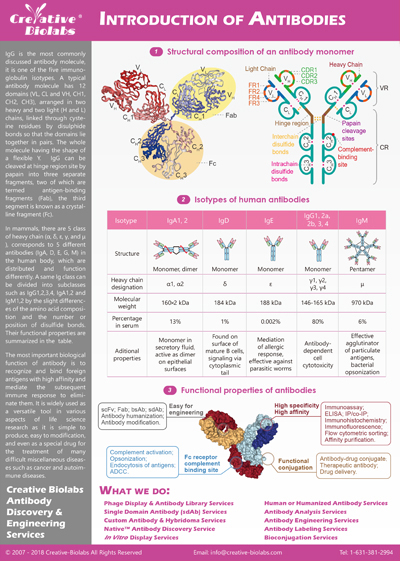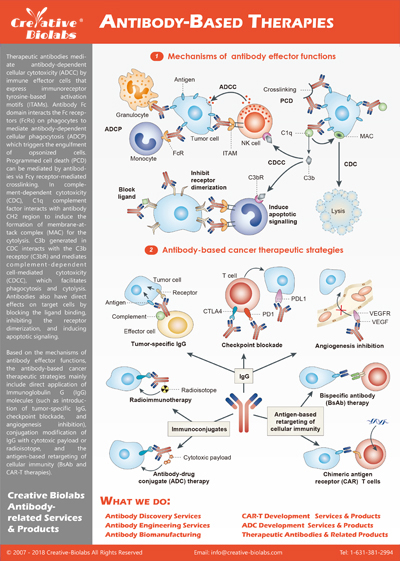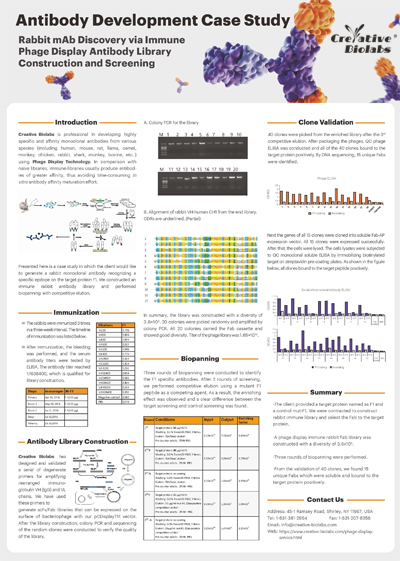Tumor Marker Assay
Tumor markers are proteins or other substances found in or released by cancer cells or other body cells during an attack of cancer or benign (noncancerous) conditions. It might tell us something about cancer, like its virulence, which can also open the
door to many new ways for scientists to treat tumors. With its in-house scientists and innovative technological platforms, Creative Biolabs is certain to deliver tumor marker assays
that enable your project to become a reality.
LET'S START NOW →

















Effective Immunohistochemistry (IHC) Service
"Creative Biolabs' IHC service was instrumental in our research on HER2 expression in breast cancer. The staining process was clean and well-executed, and we were able to visualize the localization of tumor markers within tissue samples with ease."
Highly Reliable Assays for Cancer Research
"As a research lab focused on immuno-oncology, we needed highly reliable tumor marker assays. Creative Biolabs delivered exactly what we needed. Their customized assays for breast cancer markers were precise and provided clear, reproducible results. We are confident in their technology and look forward to future collaborations."
Precise Flow Cytometry Service
"We chose Creative Biolabs for their flow cytometry service to analyze blood cancer markers, and they exceeded our expectations. Their system was fast, and the results were accurate, providing us with the multi-parametric data needed to analyze rare cell populations effectively."
Outstanding ELISA Assay for Protein Markers
"We used Creative Biolabs' ELISA assays to monitor key protein markers in our cancer samples. The assays were sensitive and cost-effective, providing reliable quantitative data that allowed us to track tumor progression with confidence."
Effective Immunohistochemistry (IHC) Service
"Creative Biolabs' IHC service was instrumental in our research on HER2 expression in breast cancer. The staining process was clean and well-executed, and we were able to visualize the localization of tumor markers within tissue samples with ease."
Highly Reliable Assays for Cancer Research
"As a research lab focused on immuno-oncology, we needed highly reliable tumor marker assays. Creative Biolabs delivered exactly what we needed. Their customized assays for breast cancer markers were precise and provided clear, reproducible results. We are confident in their technology and look forward to future collaborations."